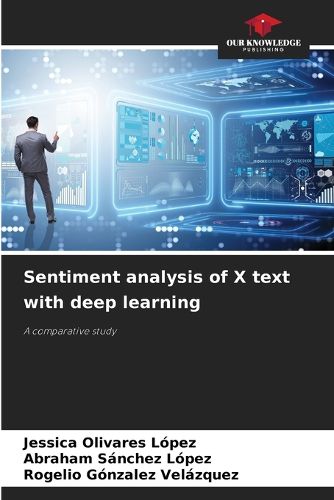Readings Newsletter
Become a Readings Member to make your shopping experience even easier.
Sign in or sign up for free!
You’re not far away from qualifying for FREE standard shipping within Australia
You’ve qualified for FREE standard shipping within Australia
The cart is loading…






Sentiment analysis is one of the text classification applications of natural language processing, basically assigning an appropriate category to the content of a sentence, text or document, based on the (previously unstructured) text processing. This classification is done by assigning a sentiment polarity: positive, negative or neutral to a sentence or a document, or by assigning an emotion that is identified in the sentence.Sentiment analysis is currently a powerful tool in various applications for different industries. It can be applied to different sectors; textile, automotive, food, manufacturing, etc., or even in government agencies, universities, among others, but specifically in spaces where data is collected on a daily basis. Therefore, the use of this type of strategies is becoming more and more important. From the data that have been generated and stored for years, inferences can be made to help validate, support or stop any type of decision making.
$9.00 standard shipping within Australia
FREE standard shipping within Australia for orders over $100.00
Express & International shipping calculated at checkout
Sentiment analysis is one of the text classification applications of natural language processing, basically assigning an appropriate category to the content of a sentence, text or document, based on the (previously unstructured) text processing. This classification is done by assigning a sentiment polarity: positive, negative or neutral to a sentence or a document, or by assigning an emotion that is identified in the sentence.Sentiment analysis is currently a powerful tool in various applications for different industries. It can be applied to different sectors; textile, automotive, food, manufacturing, etc., or even in government agencies, universities, among others, but specifically in spaces where data is collected on a daily basis. Therefore, the use of this type of strategies is becoming more and more important. From the data that have been generated and stored for years, inferences can be made to help validate, support or stop any type of decision making.